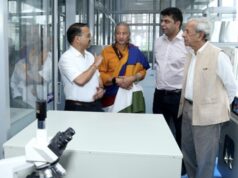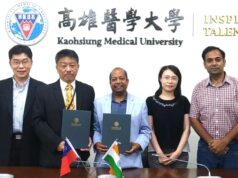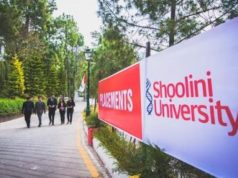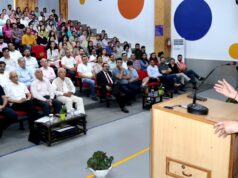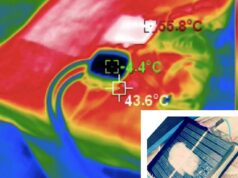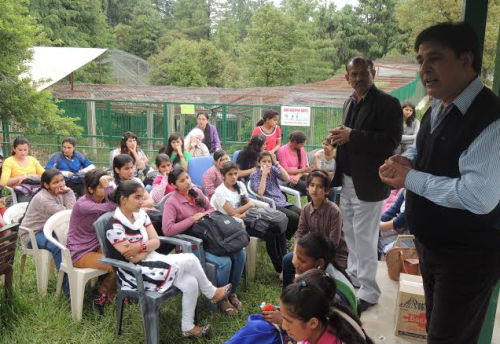Solan: Scientists at Shoolini University have developed an AI-powered health monitoring device that integrates telemedicine with cryptocurrency rewards, aiming to improve healthcare accessibility, particularly in rural and remote areas. The device combines real-time health tracking, virtual consultations, prescription automation, and doorstep medicine delivery.
Developed by Shoolini University’s Ramanujan Research Associate and Ph.D. scholar Anitya Kumar Gupta, along with SRP Biotechnology students Aditi Kulshreshtha and Sataditya Jana, the AI-powered device has garnered attention from medical professionals and technology experts for its potential to transform healthcare services.
AI-Driven Health Monitoring and Cryptocurrency Incentives
The device uses advanced AI algorithms to analyze health metrics such as blood pressure, sugar levels, and mental health indicators through sensor technology. It connects seamlessly with smartphones and wearable devices, ensuring direct interaction between patients and healthcare providers.
A user-friendly AI-powered questionnaire assesses overall health, while real-time data analysis allows for the early detection of diseases like diabetes. One of its unique features is a cryptocurrency reward system that incentivizes healthy habits. Users can earn Dogecoins by meeting health goals, such as walking a set number of steps or maintaining proper hydration. The prototype of this reward system was developed in collaboration with Claremont Graduate University, USA, under the guidance of Dr. Samir Chatterjee, who will oversee its approval before monetization.
“Our AI-powered telemedicine device represents a major leap in leveraging technology to bring accessible and efficient healthcare to underserved areas,” said Anitya Kumar Gupta. “Its integration of AI-driven health monitoring, virtual care, and cryptocurrency incentives is set to transform how patients manage their well-being, particularly in rural communities.”
Seamless Integration and Future Plans
The device is designed to work with existing mobile applications, including Apple’s Health app, eliminating the need for a separate telemedicine platform. AI-driven virtual appointments allow patients to consult doctors remotely, and an automated prescription system using a Large Language Model (LLM) sends prescriptions directly to local pharmacies for medication delivery.
“This invention is a proud moment for our team and Shoolini University,” said Aditi Kulshreshtha. “It not only addresses critical healthcare challenges in remote areas but also empowers individuals to take charge of their health with an innovative AI-powered solution. Our goal is to make healthcare more proactive and patient-centered.”
Currently, the research team is refining the system based on user feedback, with future plans to commercialize the device through a three-tier subscription model. This AI-powered innovation marks a significant step toward improving healthcare accessibility and engagement through cutting-edge technology.



